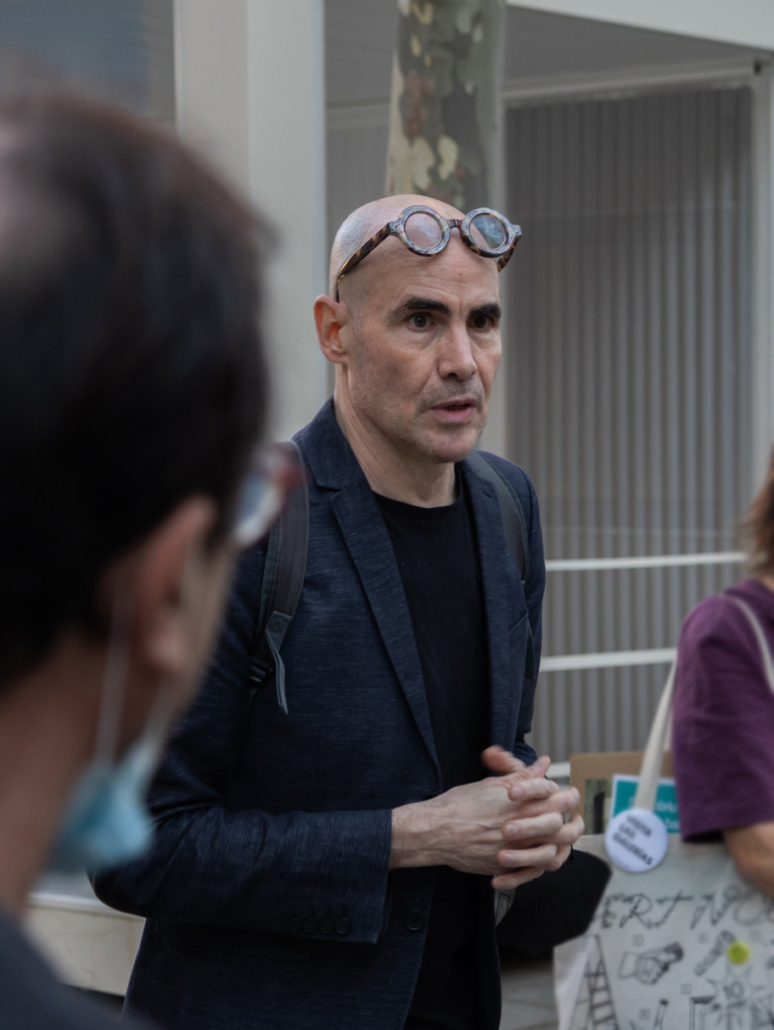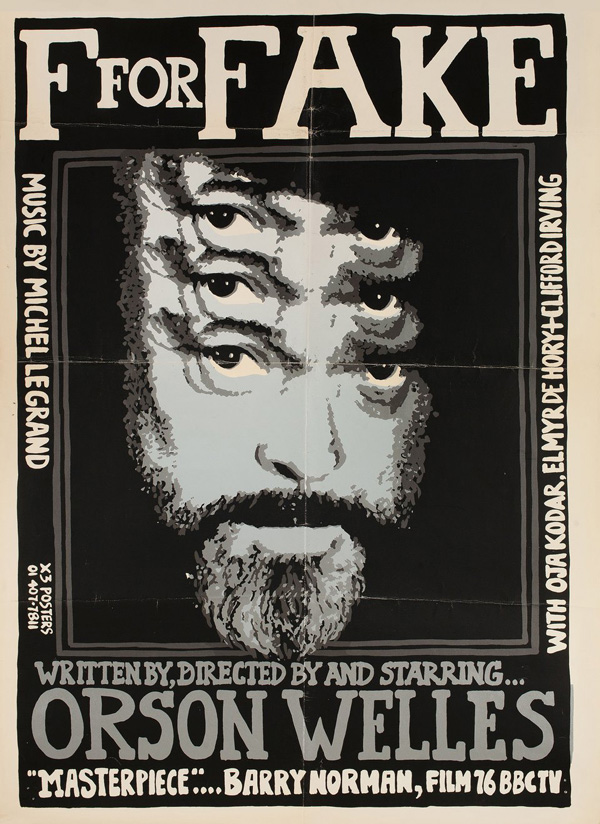(above) Ruben Verdú, photo by Yvon Groote.
On the Metàfora Studio Arts Program, Ruben gives Critical Theory classes in Psychoanalysis & the Subject: Freud and Lacan and The Future: Utopia, Dystopia.
Currently he is giving a series of workshops called Falsity: A Normative Way to Appease the World.
The Fictional Pulsion of Politics
by Ruben Verdú
To understand the force and relevance of this impetuous drive, which is undeniably present in all corners of our contemporary culture, we need to just consider the following twisted framework: “the political subordination of reality”. The tension in this bold assertion rests flatly on the contemporary trend “that facts are less important than feelings”. Crazy, isn’t it?
In class, I have insisted quite often that we need, as artists, to be very aware that the notion of rights, justice and, at the end of it all, politics, are exclusively human inventions not seen in the daily general churning of life or in any other context in nature besides that of the anthropological one. This convenient exception adds an enormous amount of existential flexibility and great doses of rhetorical amplitude when needing to pinpoint the facts of reality and, for instance, face the stubborn rigidity of the Lacanian Real, that authoritarian “No” that I always remind you we
encounter at all times. Feeling, in these circumstances, is always more important than acknowledging the violence of that inevitable “No”. Remember what Nietzsche said about that: “We possess art in order not to perish from the truth”.
Just as we hear Yuval Noah Harari saying that the notion of consciousness can be understood as “capacity to suffer”, feelings will play here, no doubt, a crucial role in our ability to define our set of contemporary truths. If “facts are subordinate to our political point of view”, obviously, then, the factual territory of reality is plagued and overwhelmed by a cacophony of desires and fictional constructs that plunge us fully into the realm of the so-called “post-truth world”. This supposedly new scenario, this “after-something-happen nowness”, is paradoxical for it means that it has trespassed a liminal space that was, so far, until now, understood and well-defined: facts are facts and work so to settle arguments.
Wishes, in this political environment, are mostly egotistical, they respond solely to the burdens that modernity instills in individuals and their subjective standings. Modernity has degraded the value of the commons to such an extent that the cohesive aims of the past has given way to the self-aggrandizing focus of individual social presence, preservation of status and advancing the social position of the individual within the group. What I call “battles of opinion” are a good example of what lies at the core of those politics. This is no more an ethical struggle that aims for the common good of humanity or the planet. Capital is not just accrescence and gains, it is also its staunch defense, the ideological and physical defense of the few against the many. And so, as Lee McIntyre reminds us, we enter that landscape of “ideological supremacy” that so much stains the political sphere of decisions today.
The article relates to Ruben’s weekly workshops on falsity for students in Years 2 and 3 of the Metàfora Studio Arts Program.
ABOUT THE SERIES OF WORKSHOPS
Falsity: A Normative Way to Appease the World
To understand the force and relevance of the drive to falsity, which is undeniably present in all corners of our contemporary culture, we need to just consider the following twisted framework: most human activities today are aimed at the “political subordination of reality”. The tension in this bold assertion rests flatly on the contemporary trend “that facts are less important than feelings”.
If this is so, we need to look at the underlying reasons that bring about this insane phenomenon and how this is linked to our creative practice. If the stand thinkers take in relation to prescient issues of contemporary relevance centers mostly around an impending political crisis (failing democracy), the spread of falsity (fake news) and a deeply troubled perspective focused solely in advancing humanity (anthropocentrism), are we ready to propose an alternative cultural practice?




